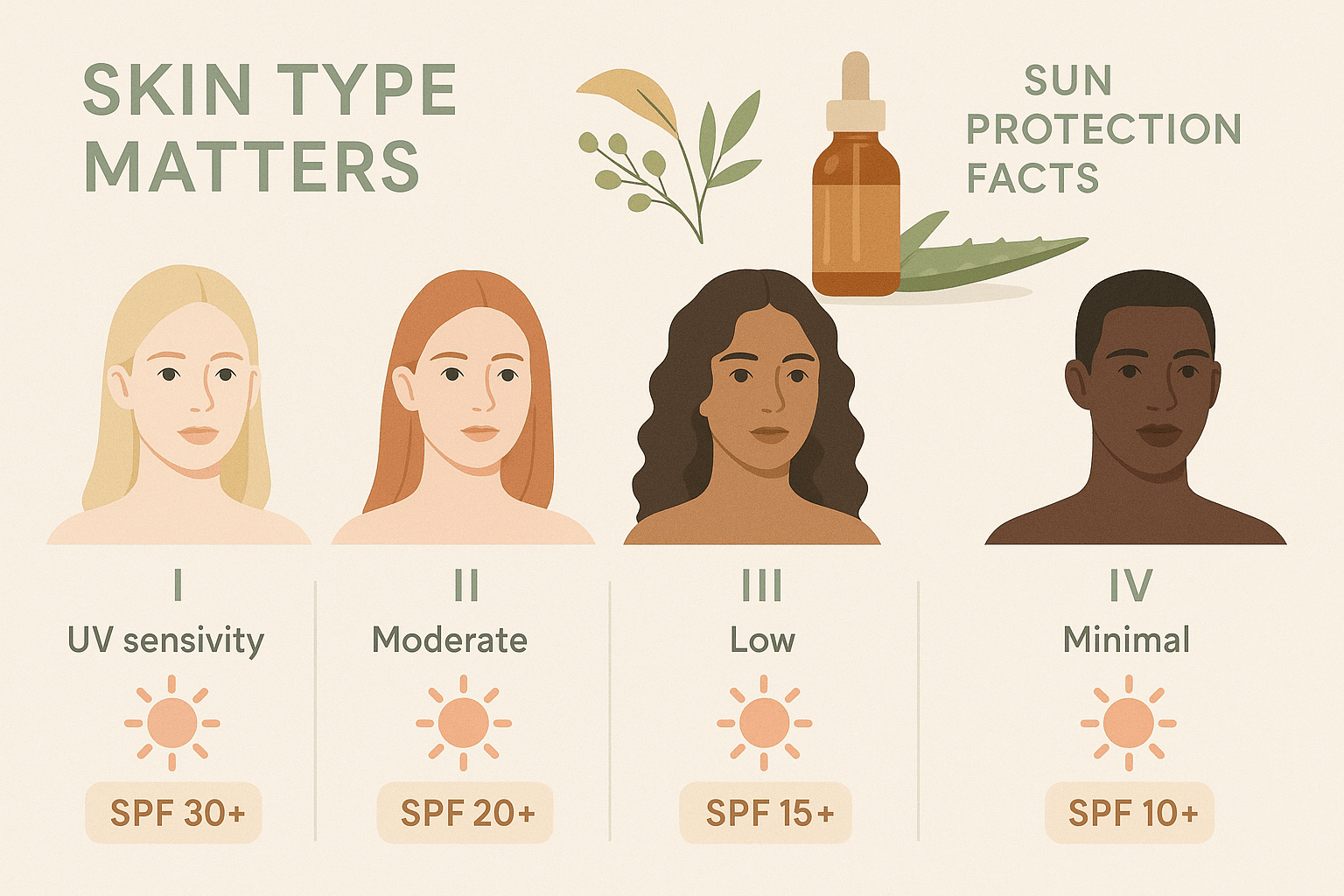
Summer Dry Skin Solutions: Causes, Myths & Hydration Strategies
How to Prevent and Treat Dry Skin in Summer
Summer brings warmth and outdoor fun, but it can also leave your skin feeling parched and tight. Understanding the factors at play, from heat and humidity to sun exposure and air conditioning, is essential for maintaining skin health during these hot months. Dive into this article as we unpack the myths and facts surrounding skin dryness in summer and discover effective strategies to combat it.
Is Heat Really the Main Cause of Summer Dry Skin?
Is Heat the Main Culprit for Skin Dryness?
When it comes to skin dryness, many people immediately point the finger at heat as the primary culprit. While it's true that heat can be a significant factor, it's important to understand the complex interplay between various environmental factors and their impact on our skin's moisture levels.
Heat is undoubtedly a significant contributor to skin dryness, but it's not the only player in this game. Factors such as humidity, wind, and even the types of products we use can all play a role in the delicate balance of our skin's hydration.
- Dry air caused by heating systems or hot climates can quickly strip the skin of its natural oils, leading to a tight, flaky, and uncomfortable complexion.
- In humid environments, the air is often saturated with moisture, which can help prevent excessive water loss from the skin.
- Wind can also be a culprit, as it can accelerate the evaporation of moisture from the skin's surface.
- The products we use, such as harsh cleansers or alcohol-based toners, can also disrupt the skin's natural barrier, making it more susceptible to dryness.
- To combat heat-induced dryness, it's essential to incorporate hydrating and nourishing skincare products into your routine, as well as to maintain a healthy level of humidity in your living and working spaces.
Addressing skin dryness requires a holistic approach that considers multiple environmental factors, not just heat alone. By understanding the nuances of how different elements interact with our skin, we can develop a more comprehensive strategy for maintaining a healthy, radiant complexion.
How Does Sun Exposure Affect Our Skin's Barrier?
The sun's rays are undoubtedly a double-edged sword when it comes to our skin. While moderate sun exposure can offer numerous benefits, such as the production of vitamin D and improved mood, excessive or unprotected sun exposure can have detrimental effects on our skin's delicate barrier.
The sun's ultraviolet (UV) radiation can penetrate deep into the skin, damaging the cells and disrupting the skin's natural defense system. This can lead to a compromised skin barrier, making the skin more susceptible to dryness, irritation, and other environmental stressors.
- UV exposure can break down the skin's lipid components, which are responsible for maintaining the skin's moisture levels and protecting it from external aggressors.
- Prolonged sun exposure can also trigger an inflammatory response in the skin, leading to redness, swelling, and discomfort.
- Over time, this chronic inflammation can weaken the skin's barrier, making it more vulnerable to transepidermal water loss (TEWL) and dehydration.
- To protect the skin's barrier and prevent sun-induced dryness, it's crucial to incorporate broad-spectrum sunscreen into your daily routine, even on cloudy days. Additionally, seeking shade during the peak UV hours and wearing protective clothing can further safeguard your skin.
Maintaining a healthy skin barrier is essential for overall skin health and resilience. By understanding the impact of sun exposure and taking proactive measures to shield our skin, we can help ensure that our complexion remains radiant, hydrated, and protected.
Does Increased Outdoor Activity Lead to Dehydration?
As the weather warms and the days grow longer, many of us are drawn to the great outdoors, eager to soak up the sun and engage in a variety of physical activities. While this increased time spent outside can be invigorating and beneficial for our overall well-being, it can also have a significant impact on our skin's hydration levels.
Engaging in outdoor activities, such as hiking, running, or even just spending time in the park, can lead to increased water loss through sweating and environmental factors, potentially resulting in skin dehydration.
- Sweat, which is the body's natural cooling mechanism, can quickly deplete the skin's moisture reserves, leaving it feeling tight, dull, and uncomfortable.
- The combination of sun exposure, wind, and heat can further accelerate the evaporation of water from the skin's surface, exacerbating the dehydration.
- Without proper hydration and replenishment, this water loss can disrupt the skin's delicate balance, leading to a compromised barrier and increased susceptibility to dryness and irritation.
- To combat the effects of outdoor activity on skin hydration, it's crucial to maintain a consistent water intake, both before and during your outdoor adventures. Additionally, using hydrating and restorative skincare products, such as serums and moisturizers, can help replenish the skin's moisture levels and support a healthy barrier.
By understanding the impact of increased outdoor activity on skin hydration, we can take proactive steps to protect and nourish our complexion, ensuring that we can enjoy the great outdoors without compromising the health and radiance of our skin.
In conclusion, the interplay between heat, sun exposure, and outdoor activities can have a significant impact on the skin's moisture levels and overall barrier function. By addressing these environmental factors and incorporating targeted skincare strategies, we can maintain a vibrant, hydrated, and resilient complexion, even in the face of the challenges posed by the great outdoors.
Uncovering the Secrets of Skin Hydration in Summer
What Is the Role of Humidity in Skin Moisture Levels?
Maintaining optimal skin hydration can be a constant challenge, especially during the hot and often dry summer months. One key factor that plays a significant role in skin moisture levels is humidity.
Humidity, the amount of water vapor present in the air, can have a profound impact on how our skin behaves. When the air is humid, it contains more moisture, which can help prevent excessive water evaporation from the skin's surface. This, in turn, can help maintain a healthy level of skin hydration.
- During periods of high humidity, the skin is able to better retain its natural oils and moisture, preventing it from becoming overly dry and dehydrated.
- Conversely, low humidity environments, such as those found in air-conditioned rooms or during arid summer days, can cause the skin to lose moisture more rapidly, leading to dryness, flakiness, and even irritation.
- The ideal humidity range for healthy skin is generally between 40-60%. Levels outside of this range can contribute to various skin concerns, including increased sensitivity, acne, and premature aging.
- To combat the effects of low humidity, it's important to incorporate humidifiers into your living and working spaces, especially during the summer months. This can help replenish the moisture in the air and support the skin's natural hydration levels.
- Additionally, using hydrating skincare products, such as serums, moisturizers, and facial oils, can help counteract the drying effects of low humidity and maintain a healthy, radiant complexion.
By understanding the crucial role of humidity in skin hydration, we can take proactive steps to ensure our skin stays nourished and balanced, even during the hottest and driest summer days.
Can Air Conditioning Worsen Skin Dryness?
Air conditioning is a common feature in many homes, offices, and public spaces, providing relief from the sweltering summer heat. However, the use of air conditioning can have a surprising impact on our skin's moisture levels.
While air conditioning helps to lower the temperature and make the environment more comfortable, it can also have a drying effect on the skin. This is because air conditioning systems remove moisture from the air, creating a low-humidity environment that can strip the skin of its natural oils and hydration.
- When the air is dry, it can cause the skin to lose water more rapidly, leading to a tight, uncomfortable feeling and an increased risk of irritation, flakiness, and premature aging.
- Prolonged exposure to air-conditioned environments, especially during the summer months, can exacerbate existing skin concerns, such as eczema, psoriasis, and rosacea, as the lack of humidity can further aggravate these conditions.
- The drying effects of air conditioning can be particularly problematic for individuals with naturally dry or sensitive skin, as they may experience more severe symptoms of dehydration and irritation.
- To counteract the drying effects of air conditioning, it's important to increase the humidity in the air, either by using a humidifier or by taking frequent breaks from the air-conditioned environment. This can help replenish the skin's moisture levels and prevent excessive water loss.
- Additionally, incorporating hydrating skincare products, such as serums, moisturizers, and facial oils, can help to lock in the skin's natural moisture and maintain a healthy, glowing complexion.
By being mindful of the impact of air conditioning on skin hydration, we can take proactive steps to protect our skin and maintain a healthy, radiant complexion, even during the warmest summer days.
Do Pollutants and Allergens Affect Skin Hydration during Summer?
The summer season often brings with it a host of environmental factors that can impact the skin's moisture levels. Beyond the effects of humidity and air conditioning, pollutants and allergens can also play a significant role in skin hydration.
During the summer, increased levels of pollutants, such as dust, pollen, and harmful chemicals, can accumulate in the air. These airborne particles can interact with the skin, leading to inflammation, irritation, and disruption of the skin's natural barrier function.
- When the skin's barrier is compromised, it becomes more vulnerable to water loss, resulting in dehydration and a loss of suppleness.
- Exposure to environmental allergens, such as pollen or dust mites, can also trigger an immune response in the skin, causing it to become inflamed and more susceptible to dryness.
- The combination of pollution and allergens can make the skin more sensitive and reactive, making it more challenging to maintain optimal hydration levels.
- To protect the skin from the damaging effects of pollutants and allergens during the summer, it's important to incorporate a comprehensive skincare routine that includes cleansing, toning, and moisturizing steps.
- Using gentle, non-irritating products that contain soothing and hydrating ingredients, such as aloe vera, ceramides, and hyaluronic acid, can help to calm the skin and lock in moisture.
- Additionally, ensuring that the skin is thoroughly cleansed and protected from environmental aggressors, such as wearing a broad-spectrum sunscreen, can help to maintain the integrity of the skin's barrier and prevent excessive water loss.
By understanding the impact of pollutants and allergens on skin hydration during the summer, we can take proactive steps to safeguard our skin and maintain a healthy, radiant complexion, even in the face of environmental challenges.
Through a deeper understanding of the factors that influence skin hydration, we can develop personalized strategies to keep our skin nourished and balanced, no matter the season. By embracing the power of humidity, mindfully managing air conditioning, and protecting our skin from environmental stressors, we can embrace the warmth of summer with confidence and a healthy, glowing complexion.
Unlock the Secrets to Radiant Summer Skin: Uncovering the Best Moisturizing Strategies
Which Moisturizers Work Best for Summer?
Summer can be a challenging time for our skin, as the hot, humid weather and increased sun exposure can leave it feeling dry, dull, and dehydrated. Choosing the right moisturizer is crucial to keeping your skin healthy and glowing throughout the warmer months.
Selecting the Perfect Summer Moisturizer
- Look for lightweight, oil-free formulas that won't clog your pores or feel heavy on the skin.
- Opt for moisturizers infused with hydrating ingredients like hyaluronic acid, glycerin, and aloe vera to quench thirsty skin.
- Consider a moisturizer with built-in sun protection to shield your skin from damaging UV rays.
How Important Is Hydration from Within?
Maintaining skin's moisture levels isn't just about what you apply topically – it's also crucial to stay hydrated from the inside out. Drinking plenty of water and incorporating water-rich foods into your diet can have a significant impact on your skin's appearance and overall health.
The Power of Hydration
- Drinking at least 8 glasses of water per day helps to flush out toxins, improve skin elasticity, and prevent premature aging.
- Eating fruits and vegetables with high water content, such as watermelon, cucumbers, and tomatoes, can further boost skin hydration.
- Avoiding dehydrating beverages like alcohol and caffeine can also help to keep your skin well-nourished.
What Daily Practices Can Help Maintain Skin Moisture?
Beyond choosing the right moisturizer and staying hydrated, there are several daily habits and routines that can help to lock in skin's moisture and promote a healthy, radiant complexion.
Cultivating a Holistic Skin Care Routine
- Incorporate a gentle, non-drying cleanser to remove impurities without stripping the skin.
- Exfoliate regularly to slough off dead skin cells and allow moisturizers to penetrate more effectively.
- Apply a hydrating serum or essence to provide an extra boost of hydration.
- Finish with a moisturizer tailored to your skin type and concerns.
- Don't forget to use a nourishing lip balm to keep your pout soft and supple.
By following these strategies – from selecting the perfect moisturizer to prioritizing hydration from the inside out and implementing a holistic skincare routine – you can unlock the secrets to radiant, healthy-looking skin all summer long. Embrace the warm weather with confidence, knowing that your skin is well-nourished and protected.
Q&A
What causes skin to feel dry in summer?
Several factors contribute to summer skin dryness, including heat, low humidity, sun exposure, and outdoor activities that increase sweat and water loss, disrupting the skin's natural moisture balance.
Can air conditioning cause skin dryness?
Yes, air conditioning can dry out the air, leading to a low-humidity environment that strips the skin of its natural oils, causing tightness and discomfort.
How does humidity affect skin moisture levels?
High humidity helps maintain skin hydration by preventing excessive water evaporation, while low humidity can accelerate moisture loss and lead to dryness.
What are effective moisturizing strategies for summer?
Opt for lightweight, oil-free moisturizers containing hydrating ingredients like hyaluronic acid and glycerin. Additionally, ensure proper hydration from within by drinking water and consuming water-rich foods.
Does sun exposure impact my skin's barrier?
Yes, excessive UV exposure can damage the skin’s barrier, leading to dryness, irritation, and a compromised ability to retain moisture. Always use broad-spectrum sunscreen for protection.
In conclusion, the interplay of heat, sun exposure, and outdoor activities significantly impacts your skin's moisture levels and barrier function. By understanding these environmental factors and incorporating a targeted skincare regimen, one can maintain a vibrant, hydrated complexion throughout the summer. Embrace the warmth with confidence, knowing your skin is nourished and protected.



